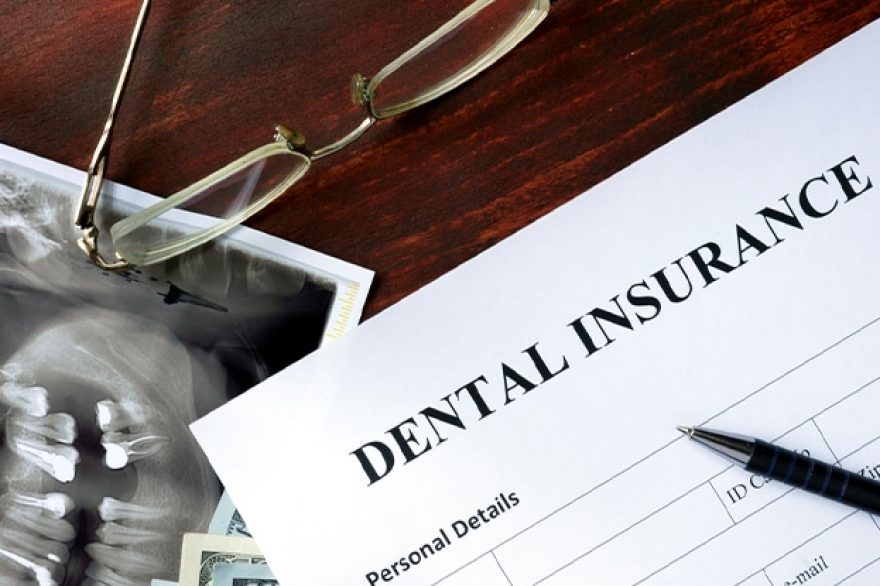Has your dentist mentioned to you it may be time to think about dental implants?
You’re probably left wondering how the dental implant process works, what the cost of dental implants is, and if your insurance plan will cover the cost.
Your oral health is of utmost importance, but sometimes worrying about how you’ll be paying for treatment can negatively affect your judgement on what’s best for your dental care.
Table of Contents
ToggleWhy Do I Need Dental Implants?
Your dentist may suggest dental implants to you for a few reasons:
- Periodontal Disease/Tooth Loss
Gum disease is the number one cause of tooth loss amongst adults. It can generally begin between the ages of 30 and 40, but it can start even younger in patients who don’t take good care of their teeth, like brushing and flossing regularly. It’s also common in adults who experience uncontrolled diabetes.
Gum disease is the number one cause of tooth loss amongst adults. It can generally begin between the ages of 30 and 40, but it can start even younger in patients who don’t take good care of their teeth, like brushing and flossing regularly. It’s also common in adults who experience uncontrolled diabetes.
- Trauma/Injury
The most common injuries associated with having a tooth knocked out are during sports or being involved in a car accident. In some cases, if the tooth is still in good condition and you make it to the dentist in good timing, it can be replanted. Otherwise, leaving a hole in your mouth can cause more oral health problems, like shifting, a weak jaw, or bone loss. It’s important to deal with a missing tooth as soon as possible.
- Failed Root Canal
Root canals have a 95% success rate, but there are times when they may still fail. Even if the smallest amount of bacteria or infection is missed, it could cause the tooth to weaken and fracture, causing pain and extreme sensitivity to hot and cold. In this case, it will need to be extracted, properly heal, and then be replaced with a dental implant.
Dental Implant Procedure

Oral surgery can seem intimidating at first, but the dental implant procedure is actually quite simple and only needs to be performed under local anesthesia. The surgeon will make a cut in your gums and surgically place a titanium screw/screws to your jawbone.
You’ll need to heal from this first before having a crown/crowns attached. As your jawbone heals and fuses with the new “root”, recovery time will vary depending on the patient and their needs. It could take anywhere from a few weeks to months to properly heal in order to receive your replacement tooth/teeth, but in the meantime, you’ll likely have a temporary crown in place.
In some cases, healing could take several months if a bone graft is needed. Bone grafts are needed in cases where your jawbone isn’t strong enough to support an implant on its own. Grafts can be taken from other parts of your body or from a donor.
What Are Crowns Made Out Of?
Dental crowns are typically made from porcelain fused to metal. They can be made from other materials too like other metals and alloys, but porcelain is often a dentist’s preferred material since it can be made to match the colour of your natural teeth. They are also stain-resistant, so you won’t notice unpleasant stains or discolouration.
What Are The Benefits Of Dental Implants?
If you have one or more missing teeth, dental implants can drastically improve your overall oral health and wellbeing.
They’re durable, long-lasting, take on the appearance of natural teeth, and can strengthen your jawbone and provide support for the rest of your teeth and lips.
Implants are unlike bridges or dentures. They don’t need support from neighbouring teeth, nor do they need to be removed. Though dentures can also improve appearance, speech, and chewing abilities, they can still promote bone loss and cause facial deformities over time.
Do Dental Insurance Plans Cover Dental Implants?
The short answer is yes, your dental insurance should cover dental implants. But, every insurance dental plan, or even medical insurance, differs per patient. Some will receive full coverage, some will have a certain percentage covered (typically 50%), and some will have a certain amount covered and they will have to pay the rest.
Since costs vary depending on the dental care you require, you can ask the employees at your dental office to send your insurance company a coverage request. They’ll let you know how much will be covered (for any procedures) so you can determine how much you’ll personally owe. If your workplace benefits don’t include dental plans, there are still options for you. In most cities in Ontario, there are public health care services for seniors, children, and low-income households.
There are also colleges and universities all across Canada that offer professional dental services as a way to gain hands-on experience in the industry. There is always a dentist overlooking everything to ensure you’re still receiving the best possible care, but at a lower cost. If you’re ever unsure as to what your insurance company offers, you can read about their plans and coverages on their personal website.
What Is The Average Cost Of A Dental Implant?

There’s no denying it, the cost of dental implants is a tad higher than what you’d pay for dentures, but for a reason. And remember, not all dental implants cost the same.
It will depend on the material being used, the number of implants you’re receiving and where they’re located, the surgeon’s time, and it’s also an additional cost for the crown and abutment (where the crown attaches).
A single dental implant could cost anywhere (on average) from $1,500 to $3,000. This doesn’t include the costs of x-rays and bone grafting. The replacement tooth could be an additional $1,500.
Crowns made from porcelain are more expensive than other materials, but it’s one of the most durable and natural-looking materials offered in dentistry today. If you have a dental insurance plan, you won’t be paying that full amount.
How Much Does It Cost For A Full Mouth Of Dental Implants?
Getting a full mouth of implants can be costly, but the health benefits are long-lasting. For a full set of implants in the upper half, you can expect to pay anywhere from $29,000 to $39,000.
For a full set of implants in the lower half, you can expect the cost to range anywhere from $25,000 t0 $31,000.
Takeaway
Did you know that 25% of the Canadian population aged 65 and up do not have any of their natural teeth? That means you’re not alone. Your dentist may suggest dental implants as a way to promote a healthy jawbone, improve your chewing and digestion issues, improve your speech, and allow for a natural-looking smile you can show off to all your friends and family.
Does your dental insurance cover implants? Most likely, but it’s best to check their website first or ask the employees at your dental office for a coverage request to determine out-of-pocket costs.
Dental implants are indeed a costly procedure, but it’s worth it to improve your overall health and wellbeing.










